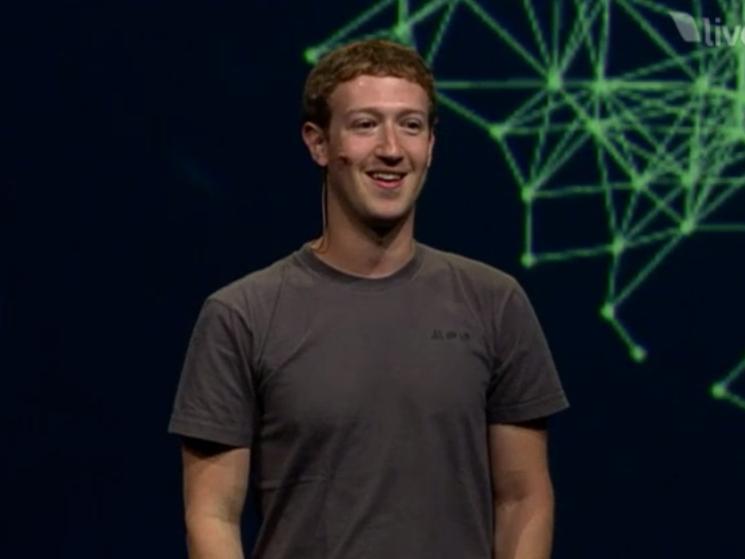Why Facebook is the real winner with Google's mediocre music strategy
Google should have pushed the labels harder

The digital music market is not in a great place right now and is in need of some major change: CD sales are still shrinking more quickly than digital revenues are growing; doubts are growing over the freemium model; overall consumer adoption remains niche.
So what does Google do? It launches another download store. Come on Google, you are one of the internet's giants. You thrive upon disrupting markets, and all you do is launch a me-too download store with an unlicensed locker feature?!
The labels and Google must both shoulder blame for the underwhelming outcome
Of course some of the blame has to be laid at the feet of the labels for restricting what services can aspire to with their current licensing structures. But Google must equally shoulder the blame for not pushing harder and for not offering the labels more in return (and I'm not talking cash).
I'm told that Google had planned to go to market with something much more ambitious but couldn't get the licenses (or perhaps at the prices they were willing to pay).
Google is arguably the most important digital conduit in the world. If Google is unable to bring that influence to bear in negotiations then what hope is there for start-ups? Google really should have pushed harder, until they got something truly amazing to work with.
But even that isn't an excuse that Google can really hide behind either. Take a look at what Facebook achieved without having to sign a single licensing deal. To use the cliched management consultant saying, Facebook thought 'out of the box'. Google meanwhile didn't so much as think within in it as let the labels tape them into it.
Facebook is gatecrashing the Triple A party
A while ago I wrote a piece talking about the Triple A of digital music (Apple, Android, Amazon) and the increasing consolidation of the market around them.
Sign up for breaking news, reviews, opinion, top tech deals, and more.
Those three players are the ones who bring the scale and stability that the major record labels so keenly crave and those are the three that the licensed service space is increasingly consolidating around.
And yet Facebook's subtly brilliant strategy of becoming the universal content dashboard looks increasingly like being the smartest play on the board. While everyone outside the Triple A falls over themselves to become a part of Facebook's coalition of unaligned powers, Facebook quietly becomes arguably the single most important force in digital music by:
- collecting all of this fantastic music consumption data from a diverse range of music services
- subverting the brands of those services to Facebook's own brand
- making logging in via Facebook and experiencing music within Facebook so convenient it becomes the mode of choice
So while Amazon and Google run around trying to beat Apple at the download game (which by the way, without closed device ecosystems they'll always come second) Facebook avoids having to deal with labels, brings something new to the digital music equation and quietly builds the data foundations of something potentially transformational to launch further down the line.
Google forgot it was a 21st Century Portal
Facebook can do all this because it is has such massive reach and scale, because as one of the two doorways into our online lives, it is one of the two true 21st Century Portals, that knows and shapes our activity. The other 21stCentury Portal? Google.
Google could have done so much more, with or without licences (and I mean legitimately by the way). Indeed the music industry needs Google to do so much more.
Of course the store will be a success. Google has such a massive addressable audience it'd really have to screw up not to make it some sort of success. But Google needs to think whether it wants its digital music success to be measured in terms of download store market share, or something much bigger, something transformational.
The simple question is, does it want to be Apple or does it want to be Facebook?
This piece was first published on Mark Mullian's Music Industry Blog. For 11 years Mark was a vice president and research director at Jupiter Research (later acquired by Forrester Research). In his role as a music analyst and senior research manager, Mark worked right across the digital music value chain, with all the leading digital music services and technology companies, the major record labels, rights bodies, retailers, hardware companies and telcos. You can follow Mark on Twitter @Mark_Mulligan.
----------------------------------------------------------------------------------------------------
Liked this? Then check out Google Music: everything you need to know
Sign up for TechRadar's free Week in Tech newsletter
Get the top stories of the week, plus the most popular reviews delivered straight to your inbox. Sign up at http://www.techradar.com/register
Follow TechRadar on Twitter * Find us on Facebook * Add us on Google+